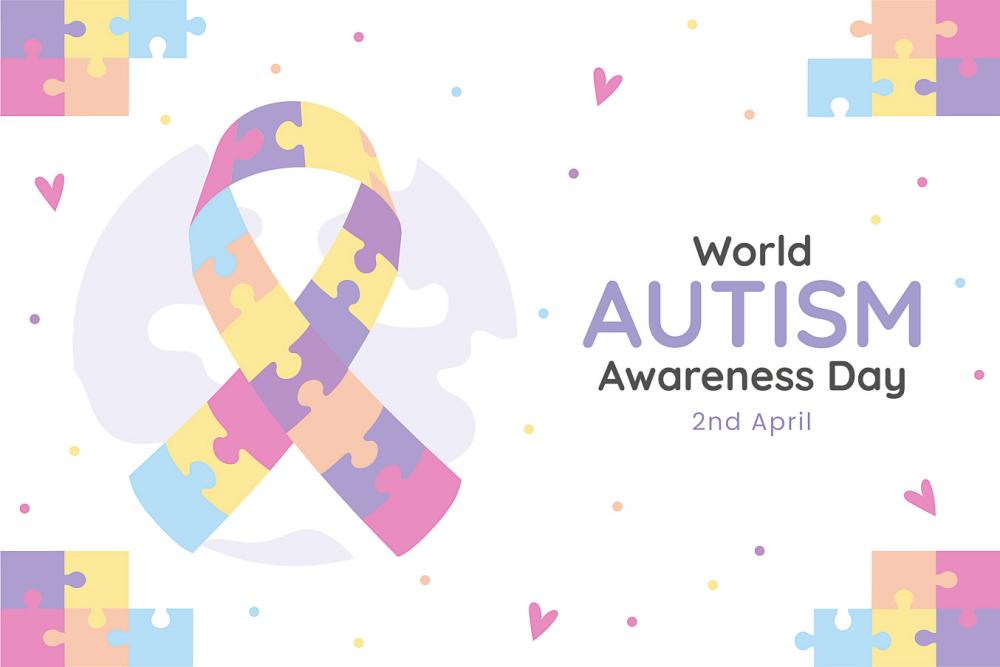WORLD Autism Awareness Day, observed annually on April 2, is a United Nations initiative to promote understanding, inclusion and advocacy for autistic individuals. It serves as a global platform to support neurodiversity and foster a more accepting society.
Autism Spectrum Disorder (ASD) is a neurodevelopmental condition characterised by differences in social communication, behaviour and sensory processing.
Globally, the number of individuals diagnosed with ASD has been increasing, and Malaysia is no exception. A study found that the prevalence of ASD among school-age children rose from 6.34 per 1,000 in 2018 to 9.29 per 1,000 in 2022.
Today, autistic individuals and their families still face significant challenges due to limited understanding and accessibility to services.
Recognising autism as a form of neurodiversity underscores that neurological differences are natural and valuable aspects of human diversity. This perspective encourages acceptance, inclusion and support while acknowledging the strengths and challenges of autistic individuals.
Challenges across the lifespan
Early childhood
Children with autism may experience delays in speech and language development, limited eye contact and difficulty engaging in imaginative play. Sensory sensitivities can lead to discomfort in environments with loud noises or bright lights. Early intervention is crucial to support developmental milestones and enhance communication skills.
School-age children
As children with autism enter school, they may struggle with social interactions, understanding social cues and adapting to changes in routine. These challenges can
lead to feelings of isolation or being misunderstood by peers.
Another significant challenge is school placement. While efforts have been made to promote inclusive education, many schools lack trained educators and adequate resources, particularly in rural areas. This gap affects learning outcomes and social development.
Specialised education classes often group children with different needs, which may limit individualised attention. Recognising these challenges, the government has committed to strengthening support in Budget 2025, focusing on affordable childcare and improved educational resources for autistic children.
Adolescence
Teenagers with autism often face new social dynamics and academic pressures.
Abstract concepts, relationships and planning for the future can be overwhelming without structured support. The lack of specialised career guidance often leaves them unprepared for higher education and employment, limiting their independence.
Adulthood
As they transition into adulthood, many autistic individuals face difficulties in securing employment, establishing independent living arrangements and forming personal relationships.
Social communication challenges and sensory sensitivities can affect workplace interactions and daily living. Services for autistic adults remain scarce, leaving many without proper support.
Role of parents, caregivers and community
Parents and caregivers of autistic individuals shoulder significant emotional, financial and social challenges while advocating for their children’s needs.
The emotional strain of continuous caregiving can lead to stress, anxiety and burnout, affecting overall well-being. Financially, the cost of therapies, specialised education and support services can be overwhelming, with estimates placing the annual expense at RM35,365 per child in Malaysia.
Social isolation due to stigma and misconceptions leaves many families without adequate community support.
Beyond caregiving, parents often become lifelong advocates, navigating complex systems to secure education, therapies and acceptance for their children, a challenge that is even greater in resource-limited areas.
A supportive community is essential in enhancing the quality of life for autistic individuals by ensuring access to education, employment and public services.
Schools can promote inclusive education by implementing individualised education plans and training teachers to support diverse learning needs.
Employers can foster workplace inclusivity by offering flexible roles that align with autistic individuals’ strengths. Raising public awareness through community programmes can help reduce stigma and promote understanding.
Additionally, ensuring accessible public spaces, such as recreational facilities and healthcare centres, can accommodate sensory sensitivities, making environments more inclusive for autistic individuals.
Malaysia has made strides in autism support but continued investment and expansion are necessary to meet growing needs.
Several organisations play a vital role in providing early intervention, education, therapy and advocacy. The National Autism Society of Malaysia offers vocational training and family support while Ideas Autism Centre focuses on early intervention and communication skills development.
Autism Link Malaysia collaborates with Autism Partnership Singapore to provide applied behaviour analysis therapy. The National Autism Resource Centre supplies screening tools and professional training while SEED Autism Services emphasises evidence-based therapy and educator training.
In addition, the Malaysian Autism Resource Foundation empowers caregivers and autistic individuals by providing essential resources and advocacy.
Embracing neurodiversity means creating inclusive environments where autistic individuals can thrive, contribute and lead fulfilling lives.
World Autism Awareness Day serves as a reminder of the importance of acceptance, inclusion and advocacy, encouraging society to celebrate strengths, recognise achievements and address challenges of autistic individuals.
By raising awareness and improving access to education, employment and healthcare, society can better support and empower neurodivergent individuals.
In Malaysia, collaboration among organisations, caregivers and the community is essential to ensuring that autistic individuals receive the opportunities and respect they deserve.
Assoc Prof Dr Chee Seok Chiong, Assoc Prof Dr Neoh Siew Hong and Dr Lim Yin Sear are academics specialising in paediatrics at the School of Medicine, Faculty of Health and Medical Sciences at Taylor’s University. Comments: letters@thesundaily.com









